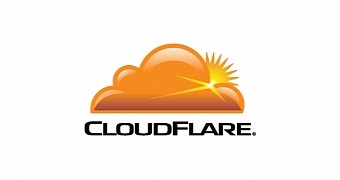ALS Scan, a US-based adult entertainment network, has filed a lawsuit in a California court, accusing CloudFlare, a leading provider of CDN and network security services, of helping fuel online piracy.
The lawsuit claims that CloudFlare has helped pirate sites stay online by providing technical support for their underlying server infrastructure.
ALS Scan says they've notified CloudFlare numerous times of the fact that several of its clients, which also include The Pirate Bay, have broken the law by hosting and helping spread copyrighted and trademarked material.
The adult entertainment company claims that CloudFlare is breaking its own terms of service, which say that repeated copyright offenders will have their accounts shut down. The company claims that CloudFlare has turned a blind eye to The Pirate Bay and multiple many other piracy sites.
“ This case raises the problem of service providers who continue to do commerce with pirate sites even after receipt of actual knowledge of repetitive acts of infringement on such sites. As averred below, these service providers turn a blind eye to actual notice that these sites are repeat infringers and continue to profit from doing business with these sites. ”
Besides CloudFlare, the lawsuit also lists as defendants Tiger Media, an adult advertising company that runs Juicy Ads. ALS Scan says that Tiger Media has helped pirate sites remain online by providing them with a steady stream of revenue, even if the pirate sites are clearly engaging in illegal activities.Favorable ALS Scan decision will have an impact on all pirate sites
The lawsuit was filed on July 11, 2016, but only recently came to light after torrent news portal TorrentFreak published an article. On the same day, the Electronic Frontier Foundation published an article titled "CloudFlare Protects Internet Users By Insisting On Lawful Orders Before Blocking Customers."
The article dealt with CloudFlare's stance in the MP3Skull lawsuit and it details all the legal tricks copyright holders have used against it in order to "make things disappear from the Internet quickly, cheaply, and without true court supervision." In other words, CloudFlare and the EFF say copyright groups often abuse the instruments put at their disposal.
But this is not the first time CloudFlare was accused of protecting shady websites. In past years, and especially after the Paris terrorist attacks from last November, CloudFlare has been slammed for offering DDoS protection to pro-ISIS internet sites.
A favorable decision for ALS Scan in this case would open the door for copyright holders to bully any other company, not just CDN providers like CloudFlare, to cease business operations with pirate sites.

 14 DAY TRIAL //
14 DAY TRIAL //